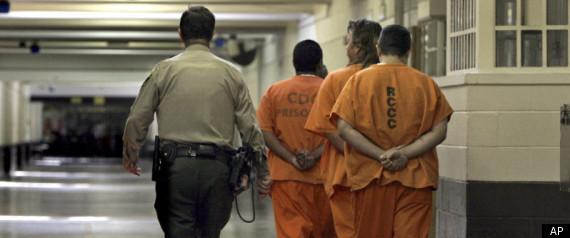The authorities of the state of California won a court approval that will allow the feed by force some of the prisoners currently hunger strike. This is after the officials raised concerns that some of the inmates on hunger strike might have been pressurized to refuse the food as a way of protesting against the solitary confinement policies of California. While responding to a request by the California state authorities, Judge Thelton E. Henderson of the US District Court ruled that the prison doctors of California could feed inmates who are almost dying by force even if the inmates had beforehand signed orders requesting not to be resuscitated.
Currently, 136 inmates from the state are participating in a hunger strike which began on the 8th of July in prisons all over the state calling for an end to solitary confinement policy which is believed to be related to gangs who are in near-isolation for years. Since the beginning of the strike, 69 of the inmates on hunger strike have continuously refused to eat food.
The recent hunger strike, one of the many similar actions that the inmates have taken in the past few years, is the latest complication to hit the prison system. It also comes at a time when the state’s prison system is under a court order by the federal court to lessen the crowding in the prisons by the year’s end, a situation that could mean releasing as many as 10,000 prisoners early. Just recently, the prison’s medical care was removed from the hands of the state due to the same reason and handed over to a receiver appointed by the court. The mental health programs of the prison were also taken away from the state and are currently in the hands of another receiver appointed by the court.
 The hunger strike which was started last month has lasted two times as long as a similar another protest that took place in 2011. The strike has also attracted more prisoners, 30,000 during the peak, although this number has been dramatically reducing over time. Going into the second month with no food, officials said that dozens on inmates had to be sent to the hospitals due to various ailments. Before the approval to force-feed the inmates, the state of California policy forbade the feeding of inmates on a hunger strike by force if they had signed orders refusing to be resuscitated in case they experienced heart failure or lost consciousness. The officials however went to court seeking permission to ignore the orders from inmates who had signed them in the course of the strike or preceding it, raising concern that some could have been coerced.
The hunger strike which was started last month has lasted two times as long as a similar another protest that took place in 2011. The strike has also attracted more prisoners, 30,000 during the peak, although this number has been dramatically reducing over time. Going into the second month with no food, officials said that dozens on inmates had to be sent to the hospitals due to various ailments. Before the approval to force-feed the inmates, the state of California policy forbade the feeding of inmates on a hunger strike by force if they had signed orders refusing to be resuscitated in case they experienced heart failure or lost consciousness. The officials however went to court seeking permission to ignore the orders from inmates who had signed them in the course of the strike or preceding it, raising concern that some could have been coerced.
In the ruling order, the judge wrote that the orders for not to be resuscitated by such inmates would be deemed invalid. However, an attorney for some of the inmates on the strike said she wasn’t aware of any form of coercion. The lawyer, Carol Strickman, claimed that the state was exaggerating the claims. She said that the state should not disregard the wishes of inmates when it came to life and death matters.



